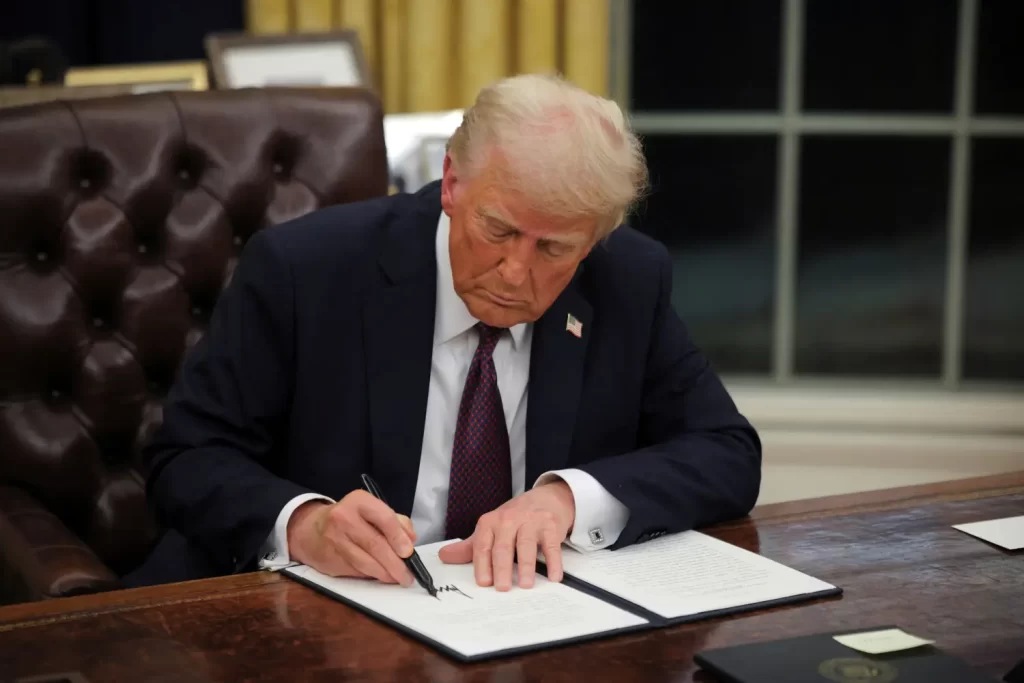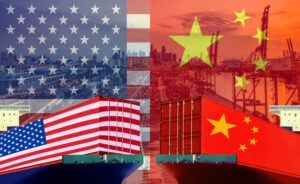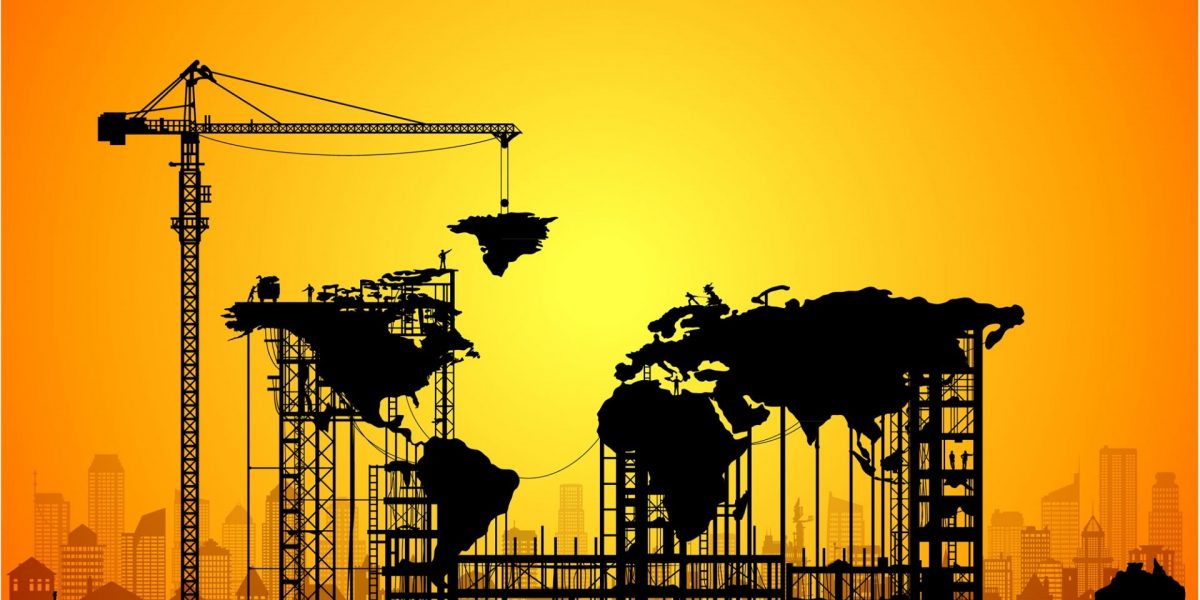Trump Slams South Africa’s Land Reform, Vows to Cut Funding Pending Investigation

Donald Trump has claimed that South Africa is “confiscating” land and “treating certain groups of people very badly,” announcing that he will cut off all future funding to the country until a full investigation is conducted into the situation.
Trump’s comments on South Africa’s controversial land reform policies were quickly rejected by the country’s government and criticized by various political groups.

Land ownership in South Africa remains deeply unequal, a legacy of the apartheid era when land was predominantly owned by the white minority. Efforts to address this imbalance have sparked both domestic and international debate. Critics of the reform, including South African-born billionaire and Trump ally Elon Musk, have been vocal in condemning the government’s approach. Musk posted on X, asking, “Why do you have openly racist ownership laws?” in response to President Cyril Ramaphosa’s defense of the policy.
Musk, who is playing a key role in Trump’s push to downsize the federal government, has also expressed support for dismantling the USAid foreign aid agency, which Trump recently took action against by removing two officials who had tried to prevent Trump’s appointees from accessing the agency’s headquarters.
In December 2024, President Ramaphosa signed a bill that allows the government to expropriate land without compensation in certain circumstances. This applies if land is abandoned or being held purely for speculative purposes and when the government deems it “just and equitable” to do so.
Trump, on his Truth Social platform, called South Africa’s actions “confiscation,” claiming that the country was “treating certain classes of people VERY BADLY.” He went on to announce that he would cut all U.S. funding to South Africa until a complete investigation into the situation was conducted.
In response, Ramaphosa defended the law, stating that the Expropriation Act is not a confiscation measure but a constitutionally mandated process to ensure equitable access to land. He emphasized that South Africa’s expropriation laws are similar to those of the U.S., where private property can be taken for public use, provided the owner is compensated.
Ramaphosa also noted that the U.S. contributes a small portion of funding to South Africa, with 17% of the country’s HIV/AIDS program supported by U.S. aid, and stressed that the law does not allow for arbitrary land seizures but requires agreement with the landowner.
The debate over land reform has sparked division in South Africa’s government. The Democratic Alliance, a white-led pro-business party, has voiced concerns, while the Inkatha Freedom Party, which represents the Zulu community, fears the policy may jeopardize the Zulu monarchy’s land holdings.
Trump’s rhetoric continued in a media briefing, where he claimed, without providing specifics, that South Africa’s government is “doing some terrible things, horrible things” in relation to land reform. He suggested that South Africa’s actions may be even worse than what has been publicly reported and that the situation was still under investigation.
South Africa’s Foreign Ministry responded, expressing hope that Trump’s advisers would use the investigation to gain a thorough understanding of the country’s policies within the framework of its constitutional democracy.
The legacy of land dispossession in South Africa stretches back to the 1913 Natives Land Act, which forcibly removed Black families from their land under apartheid. Since the country’s first multiracial elections in 1994, the government has worked to resolve these injustices. Efforts have included redistributing 7.8 million hectares of farmland and a target to redistribute 30% of white-owned farms by 2030. However, 78% of private farmland remains white-owned, and many Black farmers continue to struggle due to a lack of financial and technical support.
The right-wing, including figures like Katie Hopkins and Musk, has highlighted issues such as the murders of white South African farmers as part of their narrative against the government’s land policies. Musk, who left South Africa as a teenager, has been vocal in his criticism of the government’s approach.
Trump has surrounded himself with influential figures from Silicon Valley, many of whom have ties to southern Africa. This includes David Sacks, his advisor on artificial intelligence and cryptocurrency, who co-founded PayPal with Musk, and Peter Thiel, another PayPal co-founder with ties to southern Africa. Thiel, who lived in Namibia during apartheid, has faced accusations of supporting the regime, though a spokesperson has denied such claims.
The tensions surrounding land reform in South Africa remain a divisive issue, with international figures like Trump and Musk continuing to influence the conversation. As the situation unfolds, it remains to be seen how the dispute will impact South Africa’s political and economic future.




